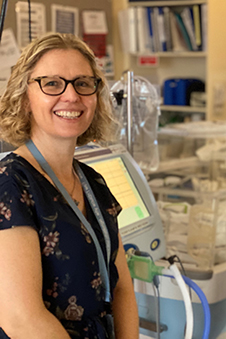The heart health of adults born prematurely, and their mothers, is the focus of a new collaborative study between the CHI and Dr Sarah Harris, specialist neonatal paediatrician. Dr Harris has been awarded a Heart Foundation project grant of $300,000.
Dr Harris said that emerging evidence shows adults who were born prematurely, and mothers who give birth to a premature baby, are at increased risk of cardiovascular disease but neither are included in our national guidelines for cardiovascular risk screening.
 Dr Sarah Harris
Dr Sarah Harris
“Cardiovascular disease is known to originate early in life. Even the in-utero environment and experiences in the early post-natal period can affect the development of cardiovascular disease.” Sarah said. “However, traditional prevention programmes recommend screening at middle age when vascular changes are established, cardiac function is declining and risk factors such as smoking, obesity, poor diet and lack of exercise are challenging to change,” she said.
“The birth of a premature baby may be an opportunity to review cardiovascular risk for both mother and baby and to initiate an earlier programme of risk surveillance, health education and preventative care that could have intergenerational benefit.”
This research project will review the current evidence for the link between premature birth and cardiovascular disease later in life and compare cardiovascular risk in a national cohort of adults born prematurely to that in term-born peers. “We will also compare cardiovascular risk, event rates and deaths in mothers of this cohort to see if there is a difference between those whose pregnancy was complicated by preterm delivery and those who delivered at term.” This project is the continuation of work that Dr Harris and the team have been doing investigating differences in the structure and function of the heart after premature birth using heart ultrasound.
This work is of particular importance to Māori, who have higher rates of premature birth and cardiovascular disease, and to ensure our cardiovascular screening programme is not missing an important risk factor contributing to premature death for women.
Find an Otago expert
Use our Media Expertise Database to find an Otago researcher for media comment.